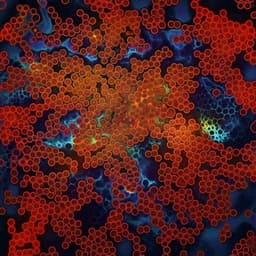
Medicine and Health
Emerging Non-Antibiotic Options Targeting Uropathogenic Mechanisms for Recurrent Uncomplicated Urinary Tract Infection
Y. Chen, W. Lee, et al.
Recurrent urinary tract infections (rUTIs) present a daunting challenge, especially for women. With antibiotic resistance on the rise, innovative non-antibiotic treatments are urgently needed. This insightful review by Yu-Chen Chen, Wei-Chia Lee, and Yao-Chi Chuang examines the pathogenicity of rUTIs and explores exciting potential alternatives like antiadhesive treatments and immunomodulation therapies. Dive into promising combination therapies that could redefine the future of rUTI management!
~3 min • Beginner • English
Related Publications
Explore these studies to deepen your understanding of the subject.







